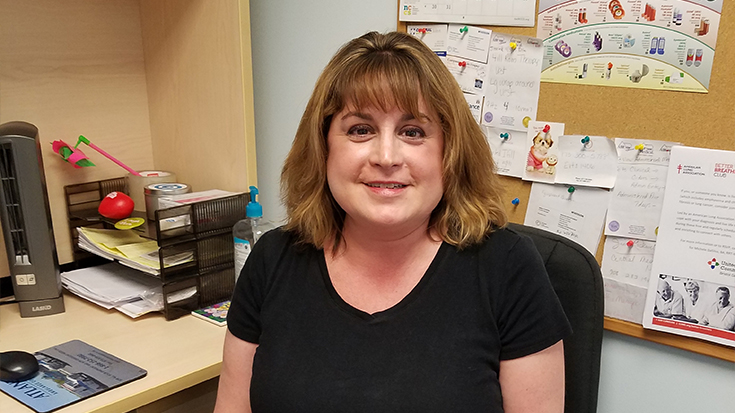
A little over a year ago I accepted a job to work as a lead respiratory therapist for Symbria Rehab at Bristol Glen, United Methodist Communities. I have been a respiratory care practitioner for 27 years and have worked in hospitals, education, and various clinical sites with patients aged neonate to the elderly.
The job at Bristol Glen piqued my interest and seemed to fit all my interests in respiratory care. I get to care for patients; educate patients, caregivers, and health care professionals; and work with the neighboring hospital pulmonary navigators and home care companies.
So what exactly is a continuing care retirement community (CCRC)? As a CCRC, Bristol Glen has independent living, assisted living, memory support, long-term care (skilled nursing), short-term rehabilitation, hospice and palliative care, and respite care.
For the residents living in independent living, assisted living, and the surrounding community I started an American Lung Association Better Breathers Club to educate and support those with lung disease. We meet once a month, have topics and speakers, and chat. Everyone in my group also knows I am available if they need any assistance or have any questions.
I’m also available for the residents in assisted living, memory support, respite, and long-term care to assess, treat, manage, and educate them on their lung diseases, exacerbations, and upper respiratory infections. We want to prevent our residents from being hospitalized. I work with a multidisciplinary team of health care professionals to treat the residents with COPD, asthma, congestive heart failure (CHF), and pneumonia.
For residents who need hospice and palliative care, I assist with providing the respiratory care that is needed for their comfort. This could be oxygen, nebulizer treatments, and BIPAP/CPAP.
Short-term rehabilitation is the transition area from hospital to home. These patients need to become a bit stronger and require some, if not all, of the following: nursing assistance, physical therapy, occupational therapy, respiratory therapy, speech therapy, and dietary advice. We work together as a team to assist these patients. We want to help them regain their strength and become healthier to go home.
In short-term rehabilitation, I treat, assess, manage, and educate the patients who were in the hospital with COPD, asthma, CHF, pneumonia, and post-op surgery. Respiratory modalities that may be needed for these patients are oxygen, nebulizers, inhalers, incentive spirometry, respiratory muscle training, and vest therapy. Education for these patients encompasses pacing, energy conservation, coughing and deep breathing, pursed lip breathing, and disease specific education.





